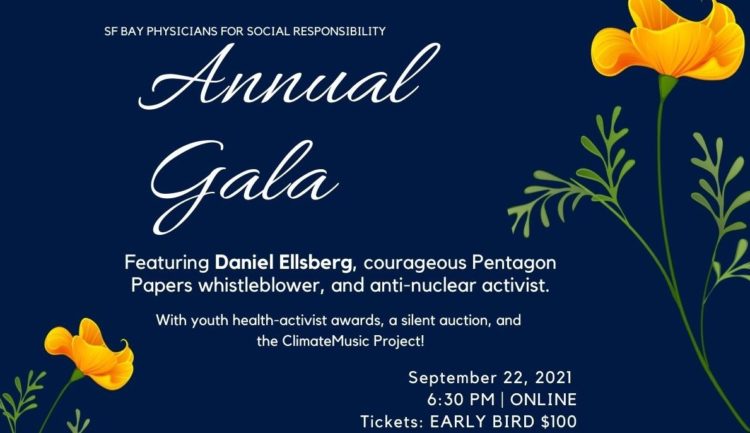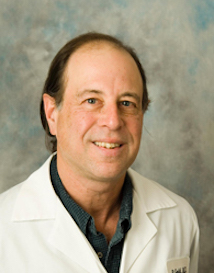WATCH Archived Events
Want to be a well-informed activist? Scroll down to find past events that are just as relevant today!
Also, please visit our YouTube channel here!

Extreme Heat: The Deadliest Climate-Related Health Hazard
How can we advocate for health and equity protections?
Hosted by SF Bay PSR
Thursday, May 18, 2023: WATCH the RECORDING HERE!
Extreme heat is the deadliest climate-related health hazard. Climate change is increasing the frequency, duration, and severity of extreme heat hazards, and protective measures are not keeping pace, especially for the most vulnerable patients, workers, and lower-income and frontline communities. Fortunately, protections from heat are more achievable than protections from other extreme weather events. In California and the Bay Area, health professionals can have a big impact advocating for equitable access to medical care, health info, and warning systems during extreme heat events; affordable cooling such as heat-cooling pumps; affordable and protected access to electricity; community cooling centers; labor laws to protect workers; and the phase out of fossil fuels and switch to renewable energy production to mitigate climate change.
Join us for a rich discussion with an expert panel of speakers who will cover heat-related health issues; what we need to do locally following the recent Air District vote to phase out gas furnaces and ensure an equitable and just transition to heat-cooling pumps and protected electricity access; and what we can all do on the state-level to advocate for policies and regulations that ensure equal access to cooling and health protections, and a just transition to renewable energy and electrification.
SPEAKERS:
Rupa Basu, PhD, MPH, is currently the chief of the Air and Climate Epidemiology Section at the Office of Environmental Health Hazard Assessment (OEHHA) of the California Environmental Protection Agency. She has published extensively on research focusing on examining temperature and air pollution on health outcomes while identifying vulnerable subgroups. Prior to joining OEHHA, she worked at the U.S. Environmental Protection Agency. She serves on several statewide and national climate change committees and has been an invited guest speaker on many occasions from academic settings including teaching a course on climate change and public health at UC Berkeley to governmental leaders, such as former Governor Schwarzenegger. She was featured in the Emmy award-winning climate change documentary, Years of Living Dangerously, “Mercury Rising” episode with Matt Damon. Dr. Basu’s work is widely cited and has received a lot of media attention, including The New York Times, The New Yorker, LA Times, SF Chronicle, National Public Radio, and BBC World News.
Robin Cooper, MD, is a San Francisco psychiatrist in private practice for the last forty years and is on the voluntary faculty as associate clinical professor in the Department of Psychiatry and Behavioral Sciences at the University of California, San Francisco. Her concerns about the impacts of climate change on mental health and well-being derive from her many years of advocacy and political work on climate change. She is co-founder and current president of Climate Psychiatry Alliance, a national group addressing the mental health impacts of climate change, and member of SF Bay PSR’s Environmental Health Committee. Her concern for environmental justice has fueled her interest in understanding the differential impacts of climate disruption on poor, under-served communities, including on mentally ill individuals. She has focused on disparities of extreme heat and created an online tool for coping with extreme heat with language translation into Spanish and Chinese. See link to the tools below.
Jessica Guadalupe Tovar is a longtime climate and environmental justice organizer in a variety of urban, rural, and indigenous communities throughout California. Jessica started with the Environmental Justice and Climate Change Initiative in 2003, working with organizations across the U.S. on issues of climate justice. Since then, she has battled various polluting corporations; PG&E in Bayview Hunters Point, Richmond Chevron Oil Refinery, and many others. She is currently an Energy Democracy organizer with the East Bay Clean Power Alliance and the Local Clean Energy Alliance fighting for equity in clean energy solutions to bring clean power to the people!
Michael Rincon leads PSR-LA’s water work, organizing, educating, and advocating with Southeast Los Angeles communities and community groups on local drinking water issues. He is often researching and identifying hazardous facilities including manufacturers, pesticides, plastics, and cleanup sites to identify violations, regulatory failure, and other trends to provide findings and policy recommendations. Recently, Michael’s work has been focused on the effects of drought and extreme heat on accessible and affordable, clean drinking water. He was also an Advisory Group Member with the Safe and Affordable Funding for Equity and Resilience (SAFER) for the California State Water Resources Control Board before his term ended last December. He earned his bachelor’s degree in Environmental Studies with a focus in Policy and Law-Making and a minor in Sustainable Engineering from the University of California, Santa Cruz. He is now pursuing a master’s in Public Policy at UCLA with a focus on environmental justice and public health.
Moderator:
Edgar Barraza joined PSR-LA in 2022 as the Energy Equity Policy coordinator and leads PSR-LA’s statewide equitable building decarbonization policy efforts through the BEEP coalition, and he supports building decarbonization policy efforts in the City of Los Angeles through the LEAP LA coalition. He is also the lead point of contact for equitable building decarbonization at CEJA’s Energy Equity Committee and actively engages in the newly formed grassroots-led Healthy Homes and Resilient Communities Committee. Throughout his career, he has championed integrating environmental justice principles into government decision making and energy policies while working in the City of Emeryville, the San Francisco Department of Environment, and at the San Francisco Public Utilities Commission. Edgar holds a bachelor’s degree in Environmental Studies from San Francisco State University and continuously learns from environmental justice leaders throughout the world.
READINGS and RESOURCES:
- HEAT WAVE Factsheets and Toolkits for staying safe and healthy during extreme heat weather events
- JAMA: Treatment and Prevention of Heat-Related Illness
- Local Clean Energy Alliance Resources
- PSR—Los Angeles: Clean Water and Air & Climate Justice Programs
- An In-depth Guide for Window Heat Pumps
- VOX Video: Learn how heat/cooling pumps work and why they are the future in 5 minutes
- Emerald Cities Collaborative Resources: a national nonprofit working on a just transition to a green economy
- Greenlining: Equitable Building Electrification: A Framework for Powering Resilient Communities
- FIND MORE health and building electrification resources here!
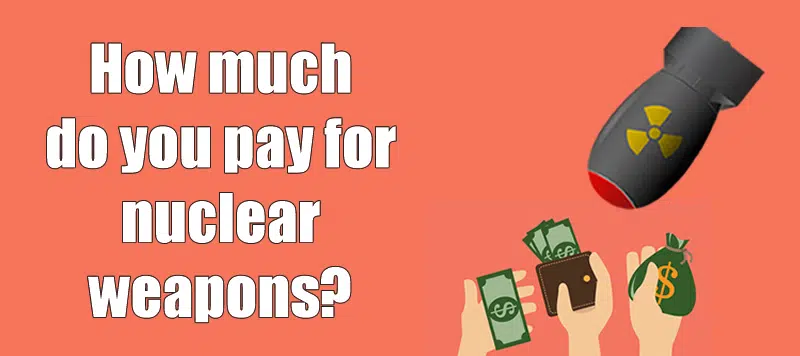
Your Tax Dollars: How Can We Invest Less in the Military and MORE in Human Needs?
Hosted by SF Bay PSR
Join SF Bay PSR for an expert panel discussion on the dreaded consequences of our constantly increasing national budgets – what we pay for with our taxes – to fund the insatiable appetite of the military-industrial complex and the ramped-up production of advanced conventional and nuclear weapons systems. A panel of experts will help us to better understand how our tax dollars could be better used to support fundamental human needs that would lead to more equality and in the long run, more social stability, health, and security for all.
Wednesday, April 12, 2023: WATCH the RECORDING HERE!
PANELISTS
Jackie Cabasso is executive director of Western States Legal Foundation in Oakland, North American coordinator of Mayors for Peace, National Co-convenor of United for Peace and Justice, and Steering Committee member of Back from the Brink.
Dr. Bob Dodge is president of PSR Los Angeles, co-chair of National PSR’s Nuclear Weapons Abolition Committee (NWAC), and creator of the extremely useful Nuclear Weapons Community Cost Calculator that allows us to concretely understand the local and statewide costs of the arms race.
Jasmine Owens is associate director for the Nuclear Weapons Abolition Program including the #DemandAccess Campaign at Physicians for Social Responsibility National office. Her work focuses on centering our collective humanity in the fight for a more just and equitable world, starting with the abolition of nuclear weapons, and with a focus on engaging younger activists.
Moderator: Dr. Tova Fuller is vice-president of SF Bay PSR, and co-chair with Dr. Dodge of National PSR’s Nuclear Weapons Abolition committee.
READING
National Priorities Project: The Biden Budget Does Some Good on Poverty and Fairness. It Could Do More if it Cut the Pentagon Budget
If you missed SF Bay PSR’s Annual Virtual GALA on Sept. 21, you can watch it online!
A MILLION THANKS to everyone who attended, bid on auction items, and donated! You all helped us to read our goal of $20,000!
At our gala, we proudly hosted Arsenio Mataka, senior federal advisor on climate, health, and equity, who educated and uplifted us with his insider take on the Inflation Reduction Act and challenged us to better ally with environmental justice groups and center the climate fight on health.
“Let’s change the story. I really believe that we will not succeed in our fight against climate change, if health isn’t at the center of the fight.”
– Arsenio Mataka, U.S. senior advisor on climate, health, equity
We also honored four young health activists: Anlan Cheney, Raj Fadadu, India Rogers-Shepp, and Karly Hampshire. These young activists’ outstanding achievements give us hope for the future and uplift our entire diverse community of courageous, dedicated, and compassionate changemakers.
WATCH the RECORDING HERE
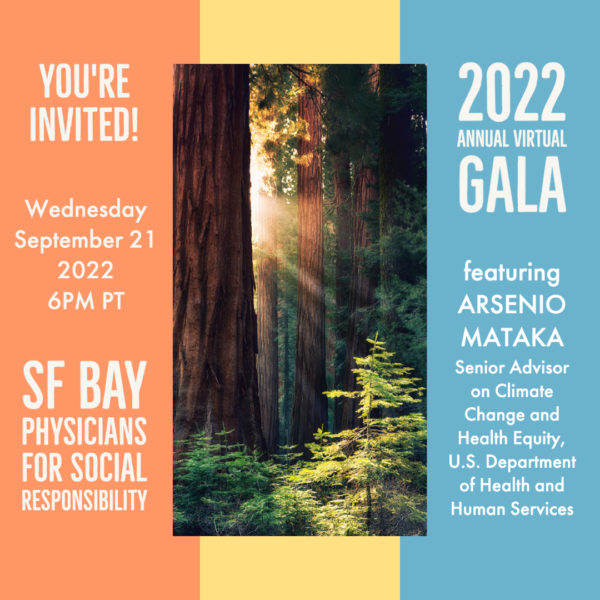
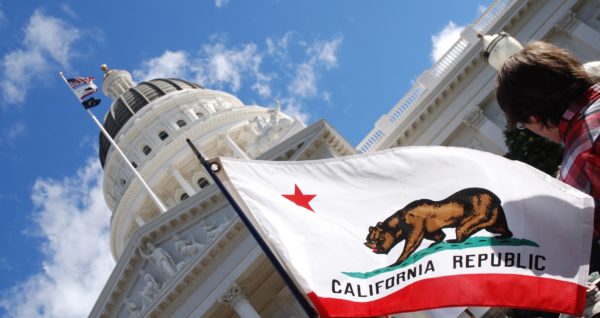
How to Influence Policy Makers in California
Hosted by SF Bay PSR
San Francisco Bay Physicians for Social Responsibility (SFBPSR) believes equitable, fair, and just public policy is key to creating a healthy society. We also believe community members, public health professionals, scientists, and clinicians working together are essential to achieving this. And one of the best ways to strengthen and build communities capacities is by investing in the development of emerging leaders.
SF Bay PSR is proud to present a two-part advocacy training series to build the skills of all who want to advocate for California legislation that will better serve our communities.
Thursday, August 18: How a Bill Becomes a Law
WATCH the RECORDING
DOWNLOAD THE SLIDES
Understanding how a bill becomes a law in California is essential to successful policy advocacy. In this workshop, advocates will learn about deadlines for bill introduction and throughout the legislative process; how bills are assigned to committees; and when advocacy is needed before, during, and after bill hearings for passage a bill. You’ll also learn about the state budget process including timing for when and how to have impact.
Thursday, September 1: How to Communicate with Policy Makers
WATCH the RECORDING
DOWNLOAD THE SLIDES
Creating political will and building public support for a policy proposal includes presenting your position in a way that engages the individuals or groups you are trying to persuade. Depending on the type of policy proposal you are advocating for, you will need a variety of different policy advocacy materials, including fact sheets and policy briefs. And it is important to understand how to craft these documents for policy advocacy. This workshop will help you understand how to craft your own message when you are speaking briefly to a policy maker or sending an email or letter in support of a bill.
SF Bay PSR Executive Director, Marj Plumb, DrPH, will lead these workshops. Marj has contributed extensively to the pursuit of social justice by training others in public policy advocacy. Marj’s training programs have reached thousands of participants including community advocates, scientists, public health professionals, and clinicians, creating hundreds of new laws and administrative changes in California and throughout the US.
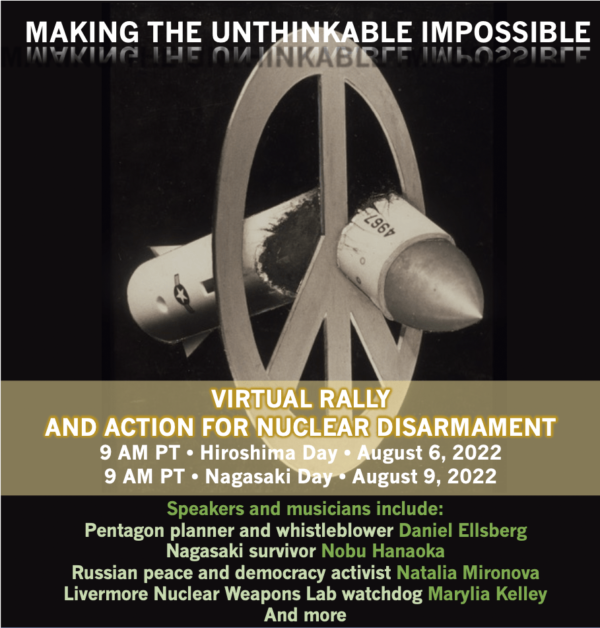
Making the Unthinkable Impossible
A Virtual Rally and Action for Nuclear Disarmament
Commemorate the WWII nuclear bombings of Japan and all those who died.
Broadcast on August 6 & 9, 2022
Listen to Daniel Ellsberg and Dr. Tova Fuller of SF Bay and National PSR
WATCH RECORDING HERE
PLANNING GROUPS: Asian Americans for Peace & Justice, Ecumenical Peace Institute, Livermore Conversion Project, No Nukes Action Committee, SF Bay Physicians for Social Responsibility, Tri-Valley Cares, Western States Legal Foundation, and Women’s International Leagure for Peace and Freedom.
“Broken Missile” reproduced with permission from original artist Peter Kennard

Building Electrification: Climate, Health, Equity: Part Two
Hosted by SF Bay PSR and co-sponsored by PSR National, RMI, Climate Health Now, and Local Clean Energy Alliance
Wednesday, April 27, 2022
WATCH THE RECORDING
(Scroll down to watch part one recorded in 2021.)
Learn from a panel of experts about new research on the health effects of fossil fuel (“natural” gas) appliances in homes, how to protect your family, and how to advocate for a just transition to all-electric homes in CA and beyond.
After industry and transportation, buildings are a top emitter of green-house gases. In California, 25% of greenhouse gas emissions are from buildings and 15% are from homes. Electrification of buildings is a critical step toward decarbonization, improved health, and health equity.
Fossil Fuel (“natural” gas) appliances and heaters are proven to increase indoor air pollution and exacerbate conditions such as asthma. The health harms from indoor pollution are compounded by the high outdoor air pollution levels in California, per the American Lung Association’s State of the Air 2020 report. Also, while 98% of Californians live in counties with a failing grade for at least one air pollution measurement, a person of color is three times more likely to live in a county with failing grades in all measurements.
California is at a critical turning point with several ground-breaking transportation and building decarbonization bills moving through the legislature that we are amplifying and supporting with our health professional voice. In addition, we need to continue our coalition efforts toward pushing the California Energy Commission (CEC) to demonstrate climate health leadership by developing a 2022 building energy code cycle to require all-electric new construction statewide.
PANELISTS
Jessica Guadalupe Tovar is a longtime environmental justice community organizer working with the Local Clean Energy Alliance for energy democracy. She is a longtime climate and environmental justice organizer in a variety of urban, rural, and indigenous communities throughout California. Jessica started with the Environmental Justice and Climate Change Initiative in 2003, working with organizations across the U.S. on issues of climate justice. Since then, she has battled various polluting corporations; PG&E in Bayview Hunters Point, Richmond Chevron Oil Refinery and many others. She is currently an Energy Democracy organizer with the Local Clean Energy Alliance fighting for equity in clean energy solutions to bring clean power to the people!text for space
Emma Hines is an associate in RMI’s Carbon-Free Buildings program, where she works on the climate, health, and air quality co-benefits of building electrification. Prior to joining RMI, Emma participated in a two-year fellowship with the Climate and Health Program at the Centers for Disease Control and Prevention (CDC). She also previously served as a member of the teaching faculty for the Climate Change and Health Online Certificate Program with the Yale School of Public Health. Emma received her master’s degree in Geography from the University of Colorado Boulder, with a focus on climate and health.text for space
Krystal Pollitt is assistant professor of epidemiology (Environmental Health Sciences) at the Yale School of Public Health and holds a cross appointment in the Yale School of Engineering and Applied Sciences. Her research explores the relationship between exposure to complex mixtures of air pollutants and disease. She has developed novel wearable technologies to characterize personal exposure criteria and emerging air pollutants. Dr. Pollitt has worked with community partners to apply these technologies in Healthy Homes initiatives in Western Massachusetts to identify asthma triggers. She holds bachelor’s and master’s degrees in Chemical Engineering from the University of Toronto, Canada, and a PhD in Environmental Toxicology from King’s College London, United Kingdom.
Zach Williams is the Health Educator & Campaign Coordinator in the Environment & Health program at PSR National, with a background in climate and health education, social services for marginalized youth, and international emergency response. Zach received both his Bachelor of Science in Applied Psychology and his Master of Public Health from New York University, where he was named the inaugural William N. Rom Climate Change Fellow for the School of Global Public Health.
text for space
This event is funded by SF Bay PSR members and with support from PSR National and the Energy Foundation. We also thank SF Bay PSR Electrification Project Intern Alma Hernandez for her outstanding contributions.
California 2022 Legislative Review
Wednesday, March 30, 2022
WATCH THE RECORDING
Are you wondering what proposals to watch and support in the 2022 session of the California legislature? Or how to lend your health voice to support the equitable and just implementation and regulation of environmental policies? Policy experts will review legislative efforts related to environmental health and the climate crisis, and explore opportunities to advocate strategically.
This year SF Bay PSR will specifically focus on bills and regulations related to air pollution, building electrification, setbacks from oil wells, EV, solar rooftop, transportation, and an equitable and just transition to a green economy.
We are thankful to the following participants.
 Will Barrett is director of Advocacy and Clean Air at the American Lung Association. He leads their work on clean air and climate change policy in California, focusing on vehicle emission standards, smart growth and clean fuels policies. Also, he represents the American Lung Association before the California Legislature and federal, state, regional and local agencies. He also serves on the steering committee of Climate Plan and the board of directors for the Center for Energy Efficiency and Renewable Technologies.
Will Barrett is director of Advocacy and Clean Air at the American Lung Association. He leads their work on clean air and climate change policy in California, focusing on vehicle emission standards, smart growth and clean fuels policies. Also, he represents the American Lung Association before the California Legislature and federal, state, regional and local agencies. He also serves on the steering committee of Climate Plan and the board of directors for the Center for Energy Efficiency and Renewable Technologies.
text for space
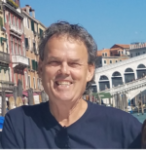 Ralph Dennis is a legislative analyst for 350 Bay Area and lead of their Clean Energy Action Team. He is a member of Solano Climate Policy Team, part of the SF Chapter Climate Reality Project, and active with his local SURJ group (Showing Up for Racial Justice). His work experience includes directing regulatory affairs for energy consulting and retail energy marketing companies, and twenty plus years with the Kentucky Energy Office and the Public Service Commission where he helped manage natural gas issues and formulate the Commission’s natural gas policies. Mr. Dennis has a B.A. in Political Science and History from Eastern Kentucky University, and has completed additional graduate work at Eastern Kentucky University and the University of Tennessee with an energy and environment focus. He and his wife Vicki are 8-year residents of California.
Ralph Dennis is a legislative analyst for 350 Bay Area and lead of their Clean Energy Action Team. He is a member of Solano Climate Policy Team, part of the SF Chapter Climate Reality Project, and active with his local SURJ group (Showing Up for Racial Justice). His work experience includes directing regulatory affairs for energy consulting and retail energy marketing companies, and twenty plus years with the Kentucky Energy Office and the Public Service Commission where he helped manage natural gas issues and formulate the Commission’s natural gas policies. Mr. Dennis has a B.A. in Political Science and History from Eastern Kentucky University, and has completed additional graduate work at Eastern Kentucky University and the University of Tennessee with an energy and environment focus. He and his wife Vicki are 8-year residents of California.
text for space
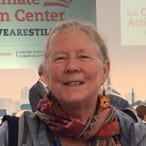 Kathy Dervin is co-founder of 350.org Bay Area and has served on Sierra Club committees including their international committee delegation to the UN Climate Change Conference in Paris, 2015. She has held positions as senior policy analyst at the Center for Climate Change and Health/Public Health Institute (Oakland) and with the California Department of Public Health, Center for Climate Change and Health. She coordinated and co-authored the state’s plan Preparing California for Extreme Heat and Integrating Public Health in Climate Action Planning (for city planners).
Kathy Dervin is co-founder of 350.org Bay Area and has served on Sierra Club committees including their international committee delegation to the UN Climate Change Conference in Paris, 2015. She has held positions as senior policy analyst at the Center for Climate Change and Health/Public Health Institute (Oakland) and with the California Department of Public Health, Center for Climate Change and Health. She coordinated and co-authored the state’s plan Preparing California for Extreme Heat and Integrating Public Health in Climate Action Planning (for city planners).
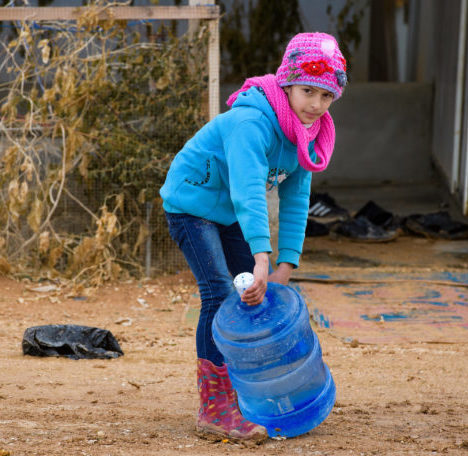
A Syrian girl at Zaatari refugee camp in Jordan on 2018-12-15
When Water and Health Care Systems Are War Targets—An Examination of the Syrian Conflict
With SF Bay PSR Former Intern Sarah Abdelrahman and Board Member Dr. Rohini Haar
Wednesday, November 3, 2021
WATCH THE RECORDING
Join us to learn more about how the climate crisis, and the targeting of water and health care systems intersect and compound negative health impacts as seen through an examination of the Syrian Conflict by SF Bay PSR Former Intern Sarah Abdelrahman.
Although protected by international law, Syria’s health care system has been targeted and severely harmed by the ongoing conflict since 2011. The destruction of the health care infrastructure, constant threats against medical workers, lack of supplies, and the pressures of being in a war zone, have affected Syrian health professionals’ ability to treat patients. Abdelrahman will share her project, The Idlib Case Study, that is designed to illustrate the narratives of healthcare workers from Idleb, Syria, through a story map.
Not only is the Syrian health system being targeted, but the water systems are being attacked too leading to severe negative environmental health impacts. The World Economic Forum has identified the water crises, along with weapons of mass destruction, failure to address climate change, and extreme weather events as some of the most serious threats to global health and security. The United Nations reported in 2018 that water played a significant role in conflicts in at least 45 countries. Abdelrahman will share her research which focuses on the effects targeting water systems and the lack of access to water has on environmental health and correlations with waterborne disease within Syria.
Sarah Adelrahman is a former SF Bay PSR intern and an MPH student studying Epidemiology and Biostatistics at the University of California Berkeley, School of Public Health. She is also an advisor to all the student chapters of California Physicians Alliance across California. Within public health, she is most interested in humanitarian health and infectious disease.
Dr. Rohini Haar is an SF Bay PSR board member and an emergency physician with expertise in health and human rights. Her work focuses on the protection of human rights in times of complex humanitarian crisis and conflict. She is particularly interested in the protection of health workers and health services. She is a research fellow at the Human Rights Center at UC Berkeley’s School of Law and works clinically at Kaiser Medical Center in Oakland, California.
 Are Nuclear Weapons Obsolete?
Are Nuclear Weapons Obsolete?
A Conversation with Nicole Perlroth about cyber security and nuclear weapons and energy
Wednesday, October 13, 2021
WATCH THE RECORDING
Co-sponsored by City Lights Bookstore.
BUY BOOKS HERE
New York Times cybersecurity reporter and author of the recent book, This is How They Tell Me the World Ends, Nicole Perlroth will join SF Bay PSR Board President Dr. Robert Gould and Vice President Dr. Tova Fuller for a conversation about cyber security and threats to our nuclear arsenals and energy facilities. In her book, Perlroth explains the untold story of the cyber weapons market—the most secretive, invisible, government-backed market on earth—and a terrifying first look at a new kind of global warfare. Drs. Gould and Fuller have decades of experience leading advocacy efforts for a nuclear-free world from a health perspective. How can we as activists address cyber security issues within our advocacy for a nuclear-free world? Join us for what is sure to be the start of a new approach to our activism.
Nicole Perlroth covers cybersecurity and digital espionage for The New York Times. She has covered Russian hacks of nuclear plants, airports, and elections; North Korea’s cyberattacks against movie studios, banks and hospitals; Iran’s attacks on oil companies, banks and the Trump campaign; the combined Israeli and U.S. “Stuxnet” attack on Iran; and, hundreds of Chinese cyberattacks, including a months-long hack of The Times—reporting which earned her several awards. Her first book, This Is How They Tell Me the World Ends, about the global cyber arms race, was published February 9, 2021.
A Bay Area native, Ms. Perlroth is also a guest lecturer at the Stanford Graduate School of Business and a graduate of Princeton University and Stanford University.
Robert Gould, MD, is an Associate Adjunct Professor in the Department of Obstetrics, Gynecology and Reproductive Sciences at the University of California, San Francisco, School of Medicine where he is a Collaborator with the Program on Reproductive Health and the Environment (PRHE). Until 2012, Dr. Gould worked as a pathologist at Kaiser Hospital in San Jose, California. He has been President of San Francisco Bay PSR since 1989, and has been on the Board of National PSR since 1993, serving as President in 2003 and 2014. Dr. Gould is Chairperson of the American Public Health Association’s Peace Caucus, and also a leading member of the Environmental Committee of the Santa Clara County chapter of the California Medical Association (CMA). Dr. Gould has authored numerous book chapters on the health impacts of nuclear weapons, including War and Public Health (2007, Oxford University Press) and Terrorism and Public Health (2011, Oxford University Press), and was the co-author (with Thomas Bodenheimer) of Rollback! Right-wing Power in U.S. Foreign Policy (1989, South End Press).
Tova Fuller MD, PhD, is an Assistant Clinical Professor in the Department of Psychiatry at the University of California San Francisco. Dr. Fuller serves as Vice President of the San Francisco Bay chapter of Physicians for Social Responsibility (SF Bay PSR) and has served on the national, Los Angeles chapter, and Washington PSR chapter boards. She was a member of PSR-LA’s nuclear ambassadors program and WPSR’s nuclear activism committee. Her primary area of interest is the interface between public health and militarism as it relates to nuclear weapons. She is the recipient of the Lown-Alexander-Sidel Award for Medical Advocacy.
MORE ABOUT NICOLE PERLROTH’S BOOK
In This Is How They Tell Me the World Ends, Nicole Perlroth provides another explanation for the ever-expanding cyberassaults on the United States: the way that U.S. intelligence agencies, in their careless rush to dominate the field, have created and hypercharged a wildly lucrative, entirely unregulated gray market for insanely dangerous digital weapons that private hackers develop and then sell to the highest bidder. Which only sometimes is the United States.
Zero day: a software bug that allows a hacker to break into your devices and move around undetected. One of the most coveted tools in a spy’s arsenal, a zero day has the power to silently spy on your iPhone, dismantle the safety controls at a chemical plant, alter an election, and shut down the electric grid (just ask Ukraine).
For decades, under cover of classification levels and non-disclosure agreements, the United States government became the world’s dominant hoarder of zero days. U.S. government agents paid top dollar-first thousands, and later millions of dollars- to hackers willing to sell their lock-picking code and their silence.
Then the United States lost control of its hoard and the market.
Now those zero days are in the hands of hostile nations and mercenaries who do not care if your vote goes missing, your clean water is contaminated, or our nuclear plants melt down.
A heartfelt THANK YOU to everyone who bought tickets, bid on auction items, and donated to our Annual Gala on Sept 22!
Did you miss our Gala on September 22, 2021?
Don’t worry. You can WATCH the RECORDING HERE.
Combating Racism in Healthcare: How to Connect with Communities in Trauma
With SF Bay PSR Board Member Dr. Jeff Ritterman
Hosted by Doctors for America
Monday, September 20, 2021
WATCH THE RECORDING
Jeff Ritterman, MD, suggests that doctors be required to train in combating medical racism in order to maintain licensure. He will share a brief presentation followed by a conversation with CEO of Sustain Equity, Kayla Hicks to connect on the impact of racism on marginalized communities.
Learn how you can begin to advocate for medical institutions and systems across the country and work to end health disparities through the implementation of Anti-Racism Curriculum.
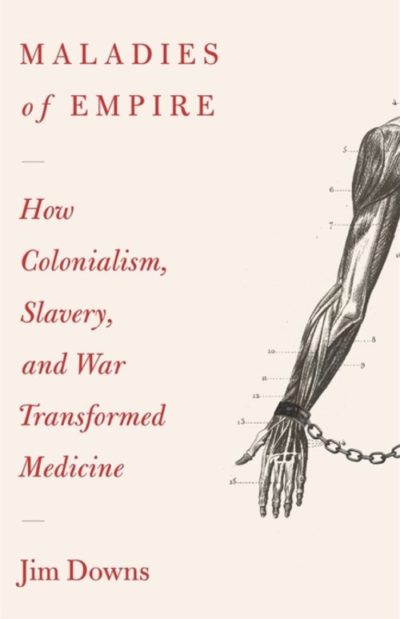 Book Release
Book Release
Maladies of Empire: How Colonialism, Slavery, and War Transformed Medicine
Author Jim Downs in conversation with Deirdre Owens Cooper
Hosted by City Lights Bookstore in conjunction with SF Bay PSR
Tuesday, September 14, 2021
CHECK the City Lights Bookstore Events page for the recording, coming soon!
READ MORE about the book and Jim Downs.
Most stories of medical progress come with ready-made heroes. John Snow traced the origins of London’s 1854 cholera outbreak to a water pump, leading to the birth of epidemiology. Florence Nightingale’s contributions to the care of soldiers in the Crimean War revolutionized medical hygiene, transforming hospitals from crucibles of infection to sanctuaries of recuperation. Yet histories of individual innovators ignore many key sources of medical knowledge, especially when it comes to the science of infectious disease.
Reexamining the foundations of modern medicine, Jim Downs shows that the study of infectious disease depended crucially on the unrecognized contributions of nonconsenting subjects—conscripted soldiers, enslaved people, and subjects of empire. Plantations, slave ships, and battlefields were the laboratories in which physicians came to understand the spread of disease. Military doctors learned about the importance of air quality by monitoring Africans confined to the bottom of slave ships. Statisticians charted cholera outbreaks by surveilling Muslims in British-dominated territories returning from their annual pilgrimage.
The scientific knowledge derived from discarding and exploiting human life is now the basis of our ability to protect humanity from epidemics. Boldly argued and eye-opening, Maladies of Empire gives a full account of the true price of medical progress.
Jim Downs is the Gilder Lehrman-National Endowment for the Humanities Professor of Civil War Era Studies and History at Gettysburg College. He is the author of Maladies of Empire: How Colonialism, Slavery, and War Transformed Medicine (Harvard UP, 2021); Sick From Freedom: African American Sickness and Suffering during the Civil War and Reconstruction (Oxford UP, 2012) and Stand By Me: The Forgotten History of Gay Liberation (Basic Books, 2016). He has edited six anthologies, including Beyond Freedom: Disrupting the History of Emancipation, and published essays in The Atlantic, The New Yorker, The Washington Post, The New York Times, Vice, Slate, among others.
Deirdre Cooper Owens is The Charles and Linda Wilson Professor in the History of Medicine and Director of the Humanities in Medicine program. She is also an Organization of American Historians’ (OAH) Distinguished Lecturer. A popular public speaker, she has published essays, book chapters, and blog pieces on a number of issues that concern African American experiences. Her first book, Medical Bondage: Race, Gender and the Origins of American Gynecology (UGA Press, 2017) won the 2018 Darlene Clark Hine Book Award from the OAH as the best book written in African American women’s and gender history.

Shine a Light, Stop the Hate, Lower the Heat
Nuclear Weapons and Climate Change
Commemorate the victims of the nuclear bombings of Hiroshima and Nagasaki, Japan, and rally online with Daniel Ellsberg to abolish nuclear weapons.
Friday, August 6, Hiroshima Day: WATCH THE RECORDING
Monday, August 9, Nagasaki Day: WATCH THE RECORDING
Tri-Valley CARES, SF Bay PSR, and co-sponsors invite you to participate in a virtual rally with Daniel Ellsberg, Nobuaki Hanaoka, Nell Myhand, Tsukuru Fors, John Burroughs, Marylia Kelley, Marshallese climate activists and more! Betsy Rose and Benjamin Mertz will provide the music.
The U.S. dropped atomic bombs on Hiroshima and Nagasaki seventy-six years ago on August 6 and 9, 1945. The nuclear explosions created shadows where there had been people. These nuclear shadows have been with us every day since.
We will be joined by a Hibakusha (A-bomb survivor) to say “never again” to nuclear devastation. And we will re-dedicate ourselves to the global abolition of nuclear weapons.
In the still-lingering time of Covid, this year’s commemoration will include a limited in-person program at Livermore Lab, one of two places where the U.S. designs all of its nuclear weapons.
The overall rally broadcast will feature the following speakers who will be filmed at the West Gate of the Livermore Lab at 9:00 AM on August 6 to kick off the virtual event: A-bomb survivor Nobu Hanaoka, Marylia Kelley and John Burroughs. The other amazing presenters listed below will be prerecorded.
SPEAKERS AND MUSICIANS
Daniel Ellsberg speaks on U.S. nuclear policy. He is perhaps best known as the whistleblower who released “The Pentagon Papers” to hasten an end to the war in Vietnam. He was an analyst at RAND Corp. and a consultant to the Defense Dept. Ellsberg recently released papers detailing the 1958 risk of nuclear war over Taiwan.
Nobuaki Hanaoka was an infant when the bomb fell on Nagasaki on August 9, 1945. His mother and sister died from illnesses linked to radiation poisoning and his brother died at age 39 from premature aging associated with fallout from the bomb. Hanaoka is a retired Methodist minister, and came to the U.S. following seminary training in Japan.
Tsukuru Fors is a founding member of Pacific Asian Nuclear-Free Peace Alliance and a trans peace/anti-nuclear/human rights activist in Los Angeles, California. As a graduate of a high school in Hiroshima where 350 young lives were brutally taken on August 6, 1945, Fors (he/them) pursues a life mission to move the world closer to a nuclear-free future.
Marylia Kelley addresses Livermore Lab’s role in promoting a new nuclear arms race. She is Executive Director at the Livermore-based Tri-Valley CAREs and brings 38 years of research, writing, and facilitating public participation in nuclear policy decisions. Kelley has testified before the U.S. Congress, the California Legislature and the National Academy of Sciences.
Dr. John Burroughs addresses the illegality of nuclear weapons under international law. Burroughs is with the Lawyers Committee on Nuclear Policy, and has represented them in Non-Proliferation Treaty review proceedings and in negotiations on the Treaty to Prohibit Nuclear Weapons. He was a member of the legal team for the Marshall Islands in its nuclear disarmament cases in the International Court of Justice.
Marcina Langrine & Benetick Kabua Maddison are two young activists with the Marshallese Educational Initiative, located in Arkansas where the highest concentration of Marshallese in the continental United States reside. They address the twin existential threats faced by the Marshall Islands, a rising ocean due to climate change and radiation damage from 67 U.S. nuclear tests and leaking debris left behind.
Nell Myhand addresses the need to redirect resources to meet human needs. Myhand is a member of the Bay Area Poor People’s Campaign: A National Call for Moral Revival Steering Committee and serves as a Quad Chair of the California PPC working locally and nationally to amplify the voices of low/no wealth people and our demands to meet our basic needs.
Betsy Rose is a singer, songwriter and community song leader, active in women’s and social change movements. In summer 2018, she helped organize and lead Choral Majority, a 400 strong pop-up community chorus. She has sung at many actions outside Livermore Lab, and brings a musical blend of spiritual grounding and justice-making inspiration.
Benjamin Mertz is a composer, performer, and song leader who specializes in music of the Black Spiritual tradition. He can often be found leading songs at benefit concerts, vigils, protest actions, sacred services, and workshops, including at actions outside Livermore Lab. Mertz’s most recent album of Black Spiritual music is titled, “Climbing Up the Mountain.”
We are honored to welcome co-emcees Patricia St. Onge & Wilson Riles, Jr., a former Oakland City Councilmember. St. Onge is a social change consultant and Six Nations/Haudenosaune and Quebecois. She will offer a blessing at the West Gate of Livermore Lab.
Virtual production for the rally thanks to Ed Ellsworth of Enlightened Films.
CO-SPONSORS
San Francisco Bay Physicians for Social Responsibility, Asian Americans for Peace & Justice, California Poor People’s Campaign Bay Area, East Bay Peace Action, East Timor Religious Outreach, Ecumenical Peace Institute, Livermore Conversion Project, Niebyl-Proctor Library, No Nukes Action, No. Calif. Communist Party, No. California Pax Christi, No. California People’s World/Mundo Popular, Peace and Freedom Party of California, Tri-Valley CAREs, War Resisters League-West, Western States Legal Foundation, and the Women’s International League for Peace & Freedom
More info at trivalleycares.org, and wslfweb.org.
Thank you to Micheile Henderson and Unsplash.com for the photo.
Decarbonizing Finance: Beyond Divestment/Investment
Wednesday, June 23, 2021
WATCH THE RECORDING
Learn how we can decarbonize finance globally and in California.
Climate change, driven by fossil-fuel emissions, represents a grave threat to human health and world-wide economies. The fossil fuel sector (FF), also known as the coal, oil, and gas sector, includes companies that extract these elements from the earth and/or refine and consume them. Ending financial support for FFs from banks, investors, and insurers would encourage industry movement toward non-fossil fuel energy development. Investment in green/renewable (GR) energy will decrease the cost of GR energy, and thus increase demand. Decarbonizing finance is key to our efforts to end the climate crisis and build a just, green economy.
Globally the movement to decarbonize finance is taking off. According to Yale Climate Connections, “Worldwide, 66 financial institutions and insurance companies have formally decided to eliminate or significantly reduce their financial support for oil and gas drilling, and 131 companies are divesting from coal mining and/or coal-fired power plants.”
PARTICIPANTS
Sandy Emerson, Fossil Free California board president, is a retired software executive and author of technical trade books on database software and operating systems. Sandy heads the “Move Your Money” campaign for FFCA that urges individuals and institutions to move their money out of polluting banks and investments. Inspired by the divestment pledges made for the 2014 People’s Climate March, Sandy is a “personal divestment evangelist” who believes in the power of individuals to align their investments with their values and help speed the transition to a clean energy future.
In California, Fossil Free California has been building coalitions to work toward fossil fuel divestment, clean energy investment, and the protection of communities most at risk of current and future damage from fossil fuels. They advocate for fossil fuel divestment in pension funds and in municipal and institutional funds in California, and offer information to individuals who want to purge fossil fuels from their portfolios. In addition, FFCA supports legislative and executive action to encourage divestment, eliminate fossil fuel extraction, decrease use of fossil fuels, and invest in a just, zero-carbon economy.
Paddy McCully is a climate, energy, water and human rights analyst and campaigner, with six years of experience leading a non-profit solar installer. Before joining Reclaim Finance as their Energy Transition Senior Analyst, he was Climate & Energy Program Director at Rainforest Action Network, and before that was Executive Director of Black Rock Solar, an organization that installed solar and did energy upgrades for tribes, non-profits, schools, colleges and small towns in Nevada. Before that he worked for 16 years at International Rivers, supporting communities around with the world impacted by destructive dams (he remains on International Rivers’ board). He was a member of the UN Environment Programme’s Dams & Development Project and a member of the advisory board for the South Asia Network on Dams, Rivers and People. Far in the distant past he was a Co-Editor of The Ecologist magazine in England, and an editor for Instituto del Tercer Mundo in Uruguay. He is the author of Silenced Rivers: The Ecology and Politics of Large Dams (Zed Books 2016 and 2001) and many, many reports, articles, op eds etc. etc. He has a degree in archaeology from the University of Nottingham, and would perhaps have had a doctorate in underwater archaeology from Queen’s University, Belfast if he hadn’t dropped out to hitch-hike across the Sahara.
One of Reclaim Finance’s main missions is to help accelerate the decarbonization of global financial flows. Reclaim Finance intends to act as a citizen counterweight in order to eliminate the impression that current action is sufficient. They track and analyze the activities of financial institutions and expose the real impacts of their activities.
READINGS
- Fossil Free California: REPORTS
- New Yorker: Bill McKibben’s column: Money Is the Oxygen on Which the Fire of Global Warming
- Yale Climate Connections: Investors flee Big Oil as portfolios get drilled
- Rain Forest Action Network: Banking on Climate Change: Fossil Fuel Finance Report 2020
- Running Out of Time: Why U.S. Health and Life Insurance Companies Should Divest from Fossil Fuels, a report by Physicians for Social Responsibility and Insure our Future
- 60 health and environmental groups call on health insurers to divest billions from fossil fuels
JOIN our Divestment/Investment Task Force!
Email Tara@sfbaypsr.org
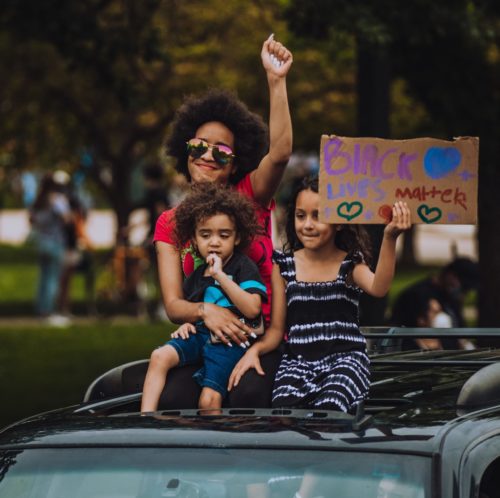
Thank you to Jacob Rosen and Unsplash.com for the photo.
The Public Health Threat of Policing and Mass Incarceration
Wednesday, May 26, 2021
WATCH THE RECORDING
On April 11, 2021, Duante Wright, a Black man, was killed by a white police officer, just miles from where George Floyd was murdered. In 2020, an average of three people were killed by the police every day of the year.
The highly respected medical journal, The Lancet, and the CDC both state that racism is a serious threat to public health. As healthcare professionals we know that an ounce of prevention is worth a pound of cure. We need to direct more funds and efforts toward improving preventative systems, supporting communities, and advancing antiracism efforts, and away from policing and incarceration. Policing is supposed to protect, not threaten lives, and yet Black people are killed by police at 2.6 times the rate of white people. The constant stress and fear this causes as well as the trauma every time another person of color is killed, creates long-term health harms. Mass incarceration adds to this burden by harming more than rehabilitating. We must reimagine and reform our social systems so that they protect public health.
We will explore these issues and more with expert guest speakers Zach Norris, executive director of the Ella Baker Center and Dr. Jennifer James, bioethics researcher, professor, and Black feminist scholar at UCSF. Please join us.
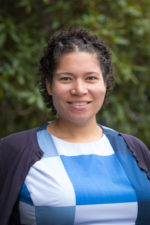
Jennifer James, PhD, MSW, MSSP is an Assistant Professor in the Institute for Health and Aging, the Department of Social and Behavioral Sciences, and the Bioethics program at the University of California, San Francisco. Dr. James is a qualitative researcher and Black Feminist scholar whose research lies at the intersection of race, gender, and health. Her current work is focused on experiences of aging, health, and illness for people who are or have been incarcerated.
Dr. James will give a very brief history of carceral health and healthcare, talk about the current moment of COVID-19 and what that has shown us about health and healthcare for those living and working in prisons and jails. We will discuss what role physicians and other healthcare workers/researchers can play, ethical questions surrounding expanding healthcare for those who are incarcerated, and the pros and cons of incrementalist vs abolitionist approaches.
text for space
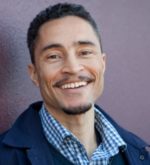
Zach Norris is the executive director of the Ella Baker Center for Human Rights, author of Defund Fear: Safety Without Policing, Prisons, and Punishment, and co-founder of Restore Oakland, a community advocacy and training center that will empower Bay Area community members to transform local economic and justice systems and make a safe and secure future possible for themselves and for their families. Zach is also a co-founder of Justice for Families, a national alliance of family-driven organizations working to end our nation’s youth incarceration epidemic.
Norris contends that we can’t take care of public safety if we haven’t taken care of the public. He will discuss how we move public policy toward an understanding of safety that is grounded in public health, including organizing strategies to shift elected officials’ perception of who is considered part of the public in the first place.
READINGS & RESOURCES
Defund Fear: Safety Without Policing, Prisons, and Punishment, by Zach Norris, has been praised by Forbes, the San Francisco Chronicle, the Boston Globe, and Kirkus Reviews.
Please support Marcus Bookstore, the nation’s oldest Black-owned independent bookstore based in Oakland, CA, or your local bookstore by purchasing this book from them, or Bookshop.org, click here.
The Guardian: Police killings of Black Americans amount to crimes against humanity, international inquiry finds
International Commission of Inquiry: REPORT on Systemic Racist Police Violence Against People of African Descent in the U.S.
The Lancet: Racism is a Public Health Crisis
CDC: Racism is a Serious Threat to the Public’s Health
NEJM: How Structural Racism Works—Racist Policies as Root Cause of U.S. Racial Health Inequities
NY Times: Throughout Trial Over George Floyd’s Death, Killings by Police Mount
Berkeley News: After a blitz of police killings, reformers focus on the power of their unions
Obama.org: Community policing Tool Kit
Washington Post: Police Shooting Database
1 A Radio Show: How Policing Works in the Suburbs
Black Feminisms: Are Prisons Obsolete? Angela Davis on Mass Incarceration
Harvard Gazette: Fatal Encounters with Police: How Their Names Project is humanizing the statistics
UCSF: The Repair Project
Links from Dr. Jennifer James’ talk:
“Prisons Make Us Safer” And 20 Other Myths about Mass Incarceration
Acres of Skin: Human Experiments at Holmesburg Prison
UCB Public Health Memo: Outbreak: San Quentin Prison
The Lancet: Mass incarceration, public health, and widening inequality in the USA
Journal of Women’s Health: Preventive healthcare for underserved women: results of a prison survey
Bandage, Sort, and Hustle: Ambulance Crews on the Front Lines of Urban Suffering
Decarcerating Disability: Deinstitutionalization and Prison Abolition
Redistributing the Poor: Jails, Hospitals, and the Crisis of Law and Fiscal Austerity
Golden Gulag Prisons, Surplus, Crisis, and Opposition in Globalizing California

Electrification of Buildings: Climate, Health, Justice: Part One
Wednesday, April 28, 2021 (Part Two will be on Wednesday, April 27, 2022)
WATCH THE RECORDING
After industry and transportation, buildings are a top emitter of green-house gases. Electrification of buildings is a critical step toward decarbonization, improved health, and health equity. Natural gas appliances and heaters are proven to increase indoor air pollution and exacerbate conditions such as asthma. The health harms from indoor pollution are compounded by the high outdoor air pollution levels in California, per the American Lung Association’s State of the Air 2020 report. Also, while 98% of Californians live in counties with a failing grade for at least one air pollution measurement, a person of color is three times more likely to live in a county with failing grades in all measurements.
California is at a critical turning point with several ground-breaking transportation and building decarbonization bills moving through the legislature that we are amplifying and supporting with our health professional voice. In addition, we need to continue our coalition efforts toward pushing the California Energy Commission (CEC) to demonstrate climate health leadership by developing a 2022 building energy code cycle to require all-electric new construction statewide.
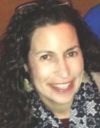
Diane Bailey is executive director of Menlo Spark, a community nonprofit aiming to help the City of Menlo Park and the region become carbon neutral. She also leads the Campaign for Fossil Free Buildings in Silicon Valley. Previously, Diane worked at the Natural Resources Defense Council, Citizens for a Better Environment in Chicago, and a local transportation planning agency in Houston. She is a certified Climate Change Professional (CC-P), and holds a bachelor’s degree in chemical engineering from Washington University and a master’s degree in environmental engineering from Rice University.
text for space
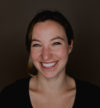 Brady Seals is a manager in RMI’s Carbon-Free Buildings program where she works at the junction of air quality, buildings, and human health. She engages stakeholders in rapidly transitioning to clean energy solutions that deliver environmental, health, and economic benefits. She is a lead author, in partnership with PSR and other organizations, of a recent report on the health effects from gas stoves. Prior to this role, Brady spent 11 years working in over 16 countries to accelerate the transition from highly polluting wood stoves to cleaner, more efficient cookstoves that are also more protective of human health.
Brady Seals is a manager in RMI’s Carbon-Free Buildings program where she works at the junction of air quality, buildings, and human health. She engages stakeholders in rapidly transitioning to clean energy solutions that deliver environmental, health, and economic benefits. She is a lead author, in partnership with PSR and other organizations, of a recent report on the health effects from gas stoves. Prior to this role, Brady spent 11 years working in over 16 countries to accelerate the transition from highly polluting wood stoves to cleaner, more efficient cookstoves that are also more protective of human health.
text for space
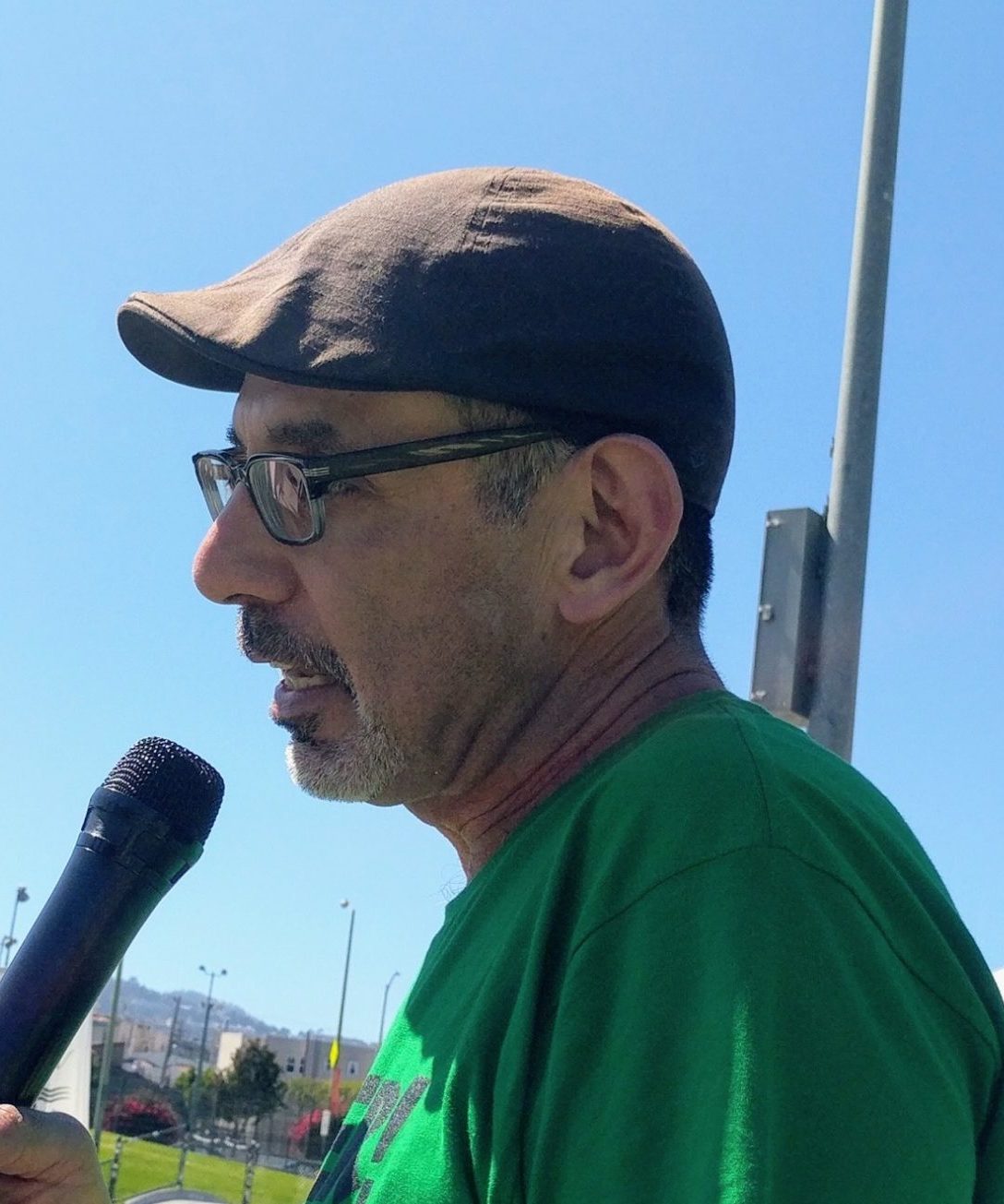 Antonio Díaz is the organizational director at PODER—People Organizing to Demand Economic and Environmental Rights, a grassroots environmental justice organization based in San Francisco. Antonio has over 20 years of experience developing and implementing policies and programs that address a range of climate and environmental issues. PODER organizes with Latinx immigrant families and youth to put into practice people-powered solutions that are locally based, community-led and environmentally just. Originally from Texas, Antonio was a founder of People Organized in Defense of Earth and her Resources (PODER), a grassroots environmental justice organization in Austin, Texas, and the Southwest Network for Environmental and Economic Justice, a bi-national environmental justice movement alliance. Antonio served as a member of the National Advisory Committee for the First National People of Color Environmental Leadership Summit. In an effort to successfully create an environmentally sustainable city, Antonio has connected the success of PODER’s local work to regional, state, national and international alliances, including through San Francisco Rising, Bay Rising, California Environmental Justice Alliance, and the Climate Justice Alliance. www.podersf.org
Antonio Díaz is the organizational director at PODER—People Organizing to Demand Economic and Environmental Rights, a grassroots environmental justice organization based in San Francisco. Antonio has over 20 years of experience developing and implementing policies and programs that address a range of climate and environmental issues. PODER organizes with Latinx immigrant families and youth to put into practice people-powered solutions that are locally based, community-led and environmentally just. Originally from Texas, Antonio was a founder of People Organized in Defense of Earth and her Resources (PODER), a grassroots environmental justice organization in Austin, Texas, and the Southwest Network for Environmental and Economic Justice, a bi-national environmental justice movement alliance. Antonio served as a member of the National Advisory Committee for the First National People of Color Environmental Leadership Summit. In an effort to successfully create an environmentally sustainable city, Antonio has connected the success of PODER’s local work to regional, state, national and international alliances, including through San Francisco Rising, Bay Rising, California Environmental Justice Alliance, and the Climate Justice Alliance. www.podersf.org
READINGS & RESOURCES
Menlo Spark: Ten Truths about Natural Gas
UCLA School of Public Health Study: Effects of residential Gas Appliances on Indoor and Outdoor Air Quality and Public Health in California
Scientific American: California is Closing the Door to Gas in New Homes
PODER: Climate Equity & Community Engagement in Building Electrification Toolkit
Jemez Principles for Democratic Organizing
The Spectrum of Community Engagement
Rocky Mountain Institute: Why Is Indoor Air Pollution Largely Unregulated?
Rocky Mountain Institute: Three Key Takeaways from California’s First Workshop on Health Impacts of Gas Stoves
Rocky Mountain Institute: California Can’t Wait on All-Electric New Building Code
The Costs and Savings of going All-Electric Infographic
Find more resources about decarbonizing your home and buildings at fossilfreebuildings.org
SF Bay PSR worked in collaboration with UCSF’s EaRTH Center on another Mini Med School for the Public series! This series expands upon previous series organized by SF Bay PSR members Drs. Robin Cooper and Katherine Gundling.
text for space
UCSF Mini Med School
Environmental Justice and Human Health:
Creating Systemic Solutions
February 23 – March 30, 2021
WATCH RECORDED SESSIONS HERE : Open to the general public
- Co-chairs include Annemarie Charlesworth, MA, Director of the UCSF EaRTH Center Community Engagement Core, Nadia Gaber, PhD, UCSF Postdoctoral Fellow and medical student, and SF Bay PSR leaders Patrice Sutton, MPH, and Robert Gould, MD.
- Speakers include many SF Bay PSR members.
- Co-sponsors include the UCSF EaRTH Center, Climate Health Center, and Student Advisory Group, and San Francisco Bay Physicians for Social Responsibility.
SERIES OVERVIEW
This series will explore a range of environmental contributors to human health and disease through the lens of our most vulnerable populations, and seek to identify and advocate for systemic solutions by health professionals and community members.
Human health is inseparable from environmental health. Our exposure to toxic environmental chemicals through air, water, food, and consumer products is contributing to a surge in chronic disease (cancer, asthma, diabetes, COPD, etc.), developmental delay, neurodegenerative disease, and infertility. Our climate emergency’s concomitant catastrophic events (hurricanes, wildfires, floods, famine, etc.) are driving massive human displacement as populations flee climate-fueled war, conflict, and environmental degradation. In the past year, the COVID-19 pandemic has revealed how the web of life connects human health to other species and global health, and the importance of systemic solutions.
Environmental threats to human health are not experienced equally among populations. Structural and institutional racism, and other economic and public policy choices underlie the fact that some communities suffer more and die earlier from environmental health harms. While healthcare professionals work to mitigate the suffering of individuals, the etiology and enduring solutions to these problems are systemic, and as such, require solutions that address the upstream influences on health at a society-wide level.
WATCH recordings of previous UCSF Mini Med School series organized by SF Bay PSR members Drs. Katherine Gundling and Robin Cooper, with talks by many SF Bay PSR members.
Part 1: The Health Emergency of Climate Change
Part 2: The Health Emergency of Our Changing Climate: Evolving Public Health Strategies in the 21st Century
Climate Change, Health, and Healthcare: Policy Implications for 2021
Hosted by NorCal: Mini Symposium for Climate and Pandemic Resilience, sponsored jointly by Stanford and UCSF.
Thursday, February 18, 2021, Noon-1:30 pm PT, online
WATCH THE RECORDING
Dr. Renee Salas will discuss how to apply a climate lens to health policy as we consider opportunities to green clinics and hospitals and train a climate-ready workforce.
Dr. Salas is an Affiliated Faculty and previous Burke Fellow at the Harvard Global Health Institute (HGHI) and a Yerby Fellow at the Center for Climate, Health, and the Global Environment (C-CHANGE) at the Harvard T.H. Chan School of Public Health. She is also a practicing emergency medicine physician at Massachusetts General Hospital and Harvard Medical School.
Dr. Salas has served as the lead author for the 2018-2020 Lancet Countdown on Health and Climate Change U.S. Brief since 2018 and founded and leads its Working Group of over 70 U.S. organizations working at the nexus of climate change and health. Dr. Salas was a co-director for the first Climate Crisis and Clinical Practice Symposium and co-leads the broader initiative in partnership with The New England Journal of Medicine. She also serves on the planning committee for the National Academy of Medicine’s Climate Change and Human Health Initiative and has testified before Congress for the full House Committee on Oversight and Reform on how climate change is harming health.
Anti-Nuclear Events
China, the U.S. and the Risk of Nuclear War
Hosted by PSR Pioneer Valley & Back from the Brink Western Massachusetts
Wednesday, April 7, 2021, online
4:00 PM – 5:30 PM PT (7:00 – 8:30pm ET)
WATCH RECORDING HERE
Join experts Rachel Esplin Odell, Tong Zhao, and Zia Mian for an important conversation on China, the U.S. and the risk of nuclear war.
Rachel Esplin Odell: Research Fellow in the Quincy Institute for Responsible Statecraft, Washington, D.C. An expert on U.S. strategy in Asia, Chinese foreign policy, and the intersection of international law and maritime security.
Tong Zhao: Senior Fellow in the Nuclear Policy Program, Carnegie Endowment for International Peace, based in Beijing at the Carnegie–Tsinghua Center for Global Policy. Research focuses on strategic security issues, such as nuclear weapons policy, arms control, and China’s security and foreign policy.
Zia Mian: physicist and Co-Director of the Program on Science and Global Security, Princeton University. Research focuses on aspects of nuclear weapons, arms control, nonproliferation, and disarmament. Board Member, Arms Control Association, and Steering Committee, Physicists Coalition for Nuclear Threat Reduction.
Michael Klare (moderator): Professor Emeritus of Peace and World Security Studies, Hampshire College. Senior Visiting Fellow, Arms Control Association and co-founder, Committee for a SANE U.S.-China Policy.
* * *
Toward an Evidence-Based Nuclear Energy Policy
Hosted by the Environmental and Energy Study Institute
WATCH RECORDING HERE
On March 30, the Environmental and Energy Study Institute (EESI) held an online briefing exploring the faulty economics of the U.S. nuclear power industry, and how to thoughtfully approach decommissioning as more civilian reactors are shut down due to health, safety and other concerns. Issues include dealing responsibly with enormous amounts of legacy high-level radioactive waste, and not shipping it to, and potentially poisoning poor communities, largely of color, as has been promoted by the nuclear industry and regulatory bodies it holds great sway over.
The briefing also provided a trenchant critique of the current promotion of nuclear power to fight global warming, including the hyping of “advanced reactors,” and dangerous plans to extend the licenses of old and increasingly brittle plants. In contrast, speakers provided compelling evidence that renewable and sustainable energy options are increasingly available worldwide to provide the far cheaper and quicker decarbonization that we urgently need, without the risks of catastrophic leaks, accidents or weapons proliferation.
Uprooting Racism in Medicine: Where do we go from here?
Aired on March 22, 2021, on KPFA.org
READ MORE and LISTEN HERE
with Dr. Jeff Ritterman, SF Bay PSR board member, and Dr. Nadia Gaber, post-doctoral fellow with the UCSF Program on Reproductive Health and the Environment
In the US, Black and other ethnic minority groups are hit the hardest by Covid-19, creating a renewed focus on racism in healthcare. There are so many false beliefs that many doctors and other healthcare providers still work from. When doctors are blind to their racist beliefs and attitudes it can lead to less effective treatments, more pain, humiliation, and even death. It’s time that doctors, medical students, and other health care professionals take anti-racist study seriously and get support to see bias in themselves and in others.

The Fire Next Time
The Devastating Effects of Climate Change, Racism, and Health Inequities on Black and Brown Communities
Thursday, October 22, 2020
WATCH THE RECORDING
Co-sponsored by Climate Health Now and San Francisco Bay Physicians for Social Responsibility.
The subtle and deadly change of heart that might occur in you would be involved with the realization that a civilization is not destroyed by wicked people; it is not necessary that people be wicked but only that they be spineless. – James Baldwin, author of The Fire Next Time
You can’t have climate change without sacrifice zones, and you can’t have sacrifice zones without disposable people, and you can’t have disposable people without racism. — Hop Hopkins, The Sierra Club
Too often climate change, systemic racism, and health inequities are seen as siloed and disconnected from one another. This webinar will examine how these important issues and concerns intersect and compound each other—often with devastating consequences for communities of color. We look forward to discussing a more holistic and integrative approach to addressing the host of challenges facing Black and Brown people. Our hope is that after viewing this webinar, participants will leave with a renewed sense of urgency and more determination to be strong advocates and allies for hard-hit and marginalized communities.
PARTICIPANTS
We are thrilled to announce our key speakers.
Dr. Linda Rae Murray has been a voice for social justice and health as a basic human right for over 50 years. Currently she is an adjunct assistant professor at the University of Illinois School of Public Health and she serves on many local and national boards including the Chicago-based Health and Medicine Policy Research Group. She remains passionate about increasing the number of Black and Latino health professionals. Read more.
Lindsay Harper is the Arm in Arm National Core Support Team Coordinator, working to organize communities to ignite a transformational era that ends the climate crisis centering racial and economic justice. Lindsay began her work in environmental, economic and social justice in 2013 with the launch of her flagship global initiative GreenGoingForward. She believes that in seeking economic development, utilizing a community-lead approach to business education can facilitate strong #InKind economies, create multi-generational wealth, and build leadership and capacity. Applying these principles will directly address the systemic economic issues perpetuating the climate crisis. Learn more about Lindsay Harper’s work with the US Climate Network.

Advocacy in Action
Environmental Injustice in San Francisco’s Bayview Hunters Point: Addressing the Enduring Health Harms of Nuclear Weapons in Our Own Backyard
Tuesday, October 13, 2020
WATCH THE RECORDING
READ article about this event in the Mission Local!
San Francisco’s Bayview Hunters Point (BVHP) residents have spent decades resiliently advocating for public health policies and environmental justice for their community. The BVHP community, a predominately African-American community, is located close to a USEPA-designated Superfund site, the Hunters Point Navy Shipyard (HPNS) and the historical site of the US Navy Radiological Defense Laboratory (NRDL). The US Navy brought scores of ships contaminated with radioactivity from nuclear weapons tests in the Pacific to HPNS, where the ships’ radioactive paint was sandblasted off into the open air. The contamination from nuclear weapons-related activities has been amplified by dozens of other pollution sites along the waterfront and throughout the community. The state’s CalEnviroScreen ranks BVHP as one of the communities in the state most at risk from pollution. This webinar will explore the history of contamination at BVHP, the health harms disproportionately suffered by community members, and the current collaboration between community members, academics, scientists, and health professionals to address these environmental injustices in our own backyard.
PARTICIPANTS
Michelle Pierce is the Executive Director of Bayview Hunters Point Community Advocates. Read an interview with Ms. Pierce on Public Knowledge.
Dr. Kim Rhoads is an Associate Professor of Epidemiology & Biostatistics and Director of the Office of Community Engagement at the University of California, San Francisco’s Helen Diller Family Comprehensive Cancer Center. She has partnered with San Francisco Bayview Hunter’s Point residents to conduct research and develop community-driven solutions to address the hazardous exposures and health inequities faced by residents.
Annemarie Charlesworth is the Director of the UCSF EaRTH Center Community Engagement Core (CEC). Prior to the founding of the EaRTH Center, she was the Associate Director of the UCSF Environmental Health Initiative and Associate Director of the Clinical Outreach and Engagement Core of the UCSF Pregnancy Exposures to Environmental Chemicals (PEEC) Children’s Center.
Daniel Hirsch is the President of the Committee to Bridge the Gap, a nuclear policy NGO, which he founded nearly half a century ago. He retired in 2017 as Director of the Program on Environmental and Nuclear Policy at the University of California, Santa Cruz.
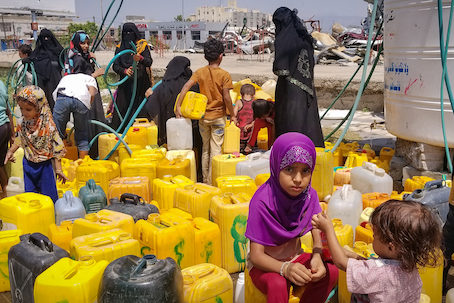
Crisis in Yemen: Opportunities for Advocacy & Action
August 12, 2020
WATCH THE RECORDING
Yemen was declared the world’s largest humanitarian disaster by the United Nations in 2017, yet we have seen little media coverage and global outcry. Please join SF Bay PSR to learn more about this crisis from the perspective of physicians and public health experts.
According to recent reports more than 100,000 men, women, and children have been killed in the ongoing armed conflicts taking place in Yemen, including more than 12,000 civilian fatalities, and 85,000 deaths from starvation and disease during this six-year civil war because armed combatants on all sides refused to allow international aid organizations to deliver much needed food, water, medicine, and other relief supplies.
In 2018, with public sentiment turning against involvement in yet another foreign war, the U.S. Congress passed, and President Trump ultimately vetoed, a resolution that would have cut off continued military assistance to Saudi-led bombing campaigns in Northern Yemen. Unfortunately, since that time, other pressing events, including the onset of COVID-19, have pushed the crisis in Yemen out of the spotlight.
This 75-minute panel presentation, organized by Sarah Bakir as part of her summer internship with SF Bay PSR, provides an opportunity for members, supporters, and guests to learn about the armed conflict in Yemen and its devastating social, economic, and health consequences.
space text here
PARTICIPANTS
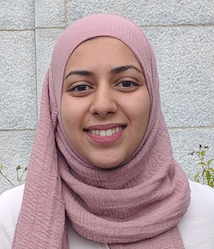 Sarah Bakir, First-Year MPH Student UC Berkeley
Sarah Bakir, First-Year MPH Student UC Berkeley
Sarah Bakir is an MPH student studying Epidemiology and Biostatistics at the University of California Berkeley, School of Public Health. She is a summer intern at the San Francisco Bay chapter of Physicians for Social Responsibility (SF Bay PSR) and will continue her internship in the fall. She is also an advisor to all the student chapters of California Physicians Alliance across California. Within public health, she is most interested in humanitarian health and infectious disease.
space text here
space text
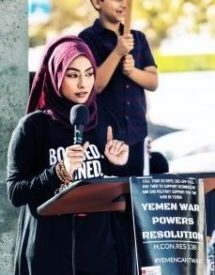
Jehan Hakim, Founder and Chair of Yemeni Alliance Committee
Jehan Hakim is a San Francisco native with a degree in Political Science. She now lives in the East Bay with her four children. Her family is originally from Yemen. She is the founder and chair of the Yemeni Alliance Committee, a social advocacy group working to resist anti-Yemeni policies. Jehan is also on the board of Just Foreign Policy.
white text for space
white text for space
white
space text here
Robert M. Gould, MD, SF Bay PSR Board President
Dr. Gould is an Associate Adjunct Professor in the Department of Obstetrics, Gynecology and Reproductive Sciences at the University of California San Francisco School of Medicine where he is a Collaborator with the Program on Reproductive Health and the Environment (PRHE). Until 2012, Dr. Gould worked as a pathologist at Kaiser Hospital in San Jose, California. He has been President of San Francisco Bay PSR since 1989, and has been on the Board of National PSR since 1993, serving as President in 2003 and 2014. Dr. Gould is Chairperson of the American Public Health Association’s Peace Caucus, and also a leading member of the Environmental Committee of the Santa Clara County chapter of the California Medical Association (CMA). Dr. Gould has authored numerous book chapters on the health impacts of nuclear weapons, including War and Public Health (2007, Oxford University Press) and Terrorism and Public Health (2011, Oxford University Press), and was the co-author (with Thomas Bodenheimer) of Rollback! Right-wing Power in U.S. Foreign Policy (1989, South End Press).
text for space
text for space
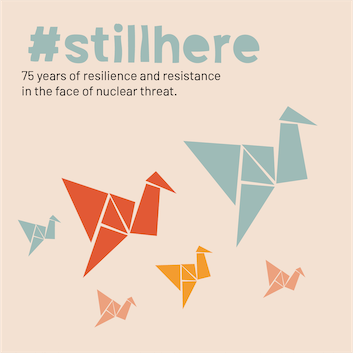
THE BOMB: Understanding Its History and the Hope for a Nuclear-Free Future
August 9, 2020
WATCH THE RECORDING
This is a virtual event that will be hosted by City Lights on the Zoom platform. If you have not used Zoom before, you may consider referencing Getting Started with Zoom.
San Francisco Bay Physicians for Social Responsibility in collaboration with City Lights Booksellers & Publishers present: A discussion with Fred Kaplan, James L Nolan Jr., Dr. Tova Fuller, and Dr. Robert Gould commemorating the 75th anniversary of the bombings that killed over 200,000 people in Hiroshima and Nagasaki in August 1945.
City Lights founder Lawrence Ferlinghetti has a special connection to these events. He was a naval commander serving during World War II, and one of few American soldiers to walk on Nagasaki shortly after the bombs were dropped. His experience changed his life and inspired him to start a bookstore with the motto, “Books Not Bombs.”
During this afternoon of discussion, we hope to assess the events of that time, their impact on the world, and where we stand now, facing the dawn of a new global nuclear arms race that compounds the climate and pandemic threats to human survival. At a time when the Nuclear Weapons States possess more than 13,000 nuclear weapons, we will focus on the manifold threats posed by new global programs to expand and modernize nuclear weapons arsenals, the rejection of arms control treaties, as well as the heightened great-power confrontation now accelerating in the Pacific region.
While we face our unfolding planetary emergencies, the profound “opportunity costs” of our government planning to spend more than $4 million an hour over the next 30 years to potentially annihilate countless millions of people is unfathomable.
Our speakers will also present alternative visions offered by the global movement to abolish nuclear weapons epitomized by the 2017 United Nations’ Treaty to Ban Nuclear Weapons, and the prospects for connecting this with wider popular movements seeking to transform our global priorities in the direction of climate, environmental, and social justice necessary for global survival.
PARTICIPANTS

Fred Kaplan is the national-security columnist for Slate and the author of five previous books, Dark Territory: The Secret History of Cyber War, The Insurgents: David Petraeus and the Plot to Change the American Way of War (a Pulitzer Prize finalist and New York Times bestseller), 1959, Daydream Believers, and The Wizards of Armageddon. He lives in Brooklyn with his wife, Brooke Gladstone.
James L. Nolan, Jr., is Washington Gladden 1859 Professor of Sociology at William’s College. His previous books include What They Saw in America: Alexis de Tocqueville, Max Weber, G. K. Chesterton, and Sayyid Qutb, and Reinventing Justice: The American Drug Court Movement.
Tova Fuller MD, PhD, is an Assistant Clinical Professor in the Department of Psychiatry at the University of California San Francisco. Dr. Fuller serves as Vice President of the San Francisco Bay chapter of Physicians for Social Responsibility (SF Bay PSR) and has served on the national, Los Angeles chapter, and Washington PSR chapter boards. She was a member of PSR-LA’s nuclear ambassadors program and WPSR’s nuclear activism committee. Her primary area of interest is the interface between public health and militarism as it relates to nuclear weapons. She is the recipient of the Lown-Alexander-Sidel Award for Medical Advocacy.
Robert Gould, MD, is an Associate Adjunct Professor in the Department of Obstetrics, Gynecology and Reproductive Sciences at the University of California San Francisco School of Medicine where he is a Collaborator with the Program on Reproductive Health and the Environment (PRHE). Until 2012, Dr. Gould worked as a pathologist at Kaiser Hospital in San Jose, California. He has been President of San Francisco Bay PSR since 1989, and has been on the Board of National PSR since 1993, serving as President in 2003 and 2014. Dr. Gould is Chairperson of the American Public Health Association’s Peace Caucus, and also a leading member of the Environmental Committee of the Santa Clara County chapter of the California Medical Association (CMA). Dr. Gould has authored numerous book chapters on the health impacts of nuclear weapons, including War and Public Health (2007, Oxford University Press) and Terrorism and Public Health (2011, Oxford University Press), and was the co-author (with Thomas Bodenheimer) of Rollback! Right-wing Power in U.S. Foreign Policy (1989, South End Press).
BOOKS
Books will be available on the City Lights website and at Bookshop.org. Please support your neighborhood bookstore.
Atomic Doctors: Conscience and Complicity at the Dawn of the Nuclear Age
by James L. Nolan Jr. – published by Belknap/Harvard Press
A vital and vivid account of a largely unknown chapter in atomic history, Atomic Doctors is a profound meditation on the moral dilemmas that ordinary people face in extraordinary times. Atomic Doctors follows physicians as they sought to maximize the health and safety of those exposed to nuclear radiation, all the while serving leaders determined to minimize delays and maintain secrecy.
The Bomb: Presidents, Generals, and the Secret History of Nuclear War
by Fred Kaplan – published by Simon & Schuster
From the author the classic The Wizards of Armageddon and Pulitzer Prize finalist comes the definitive history of American policy on nuclear war—and Presidents’ actions in nuclear crises—from Truman to Trump.

